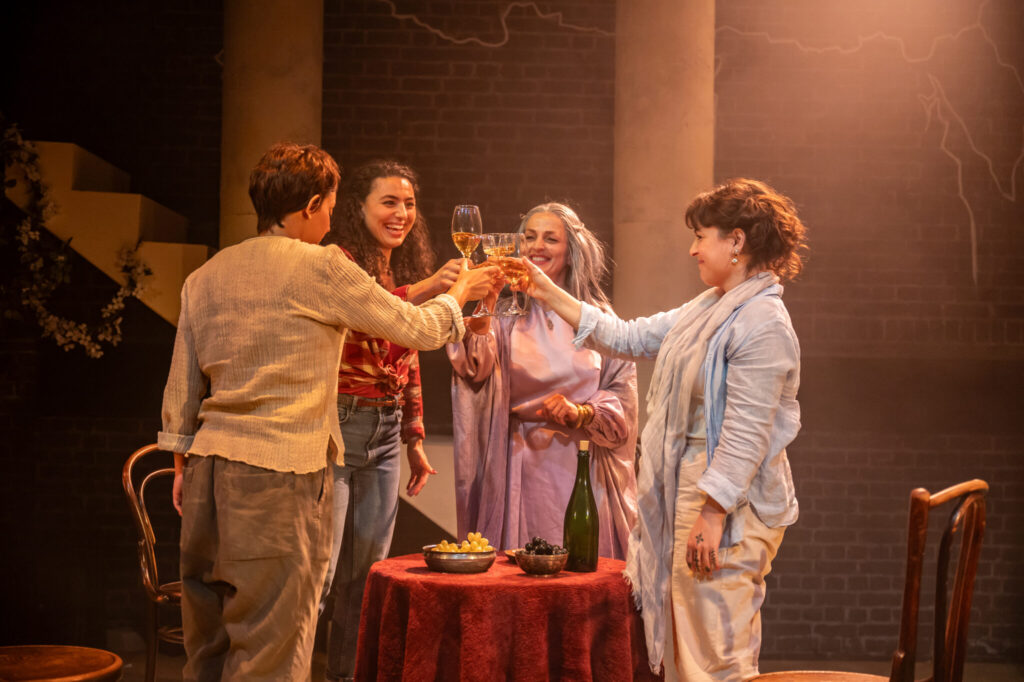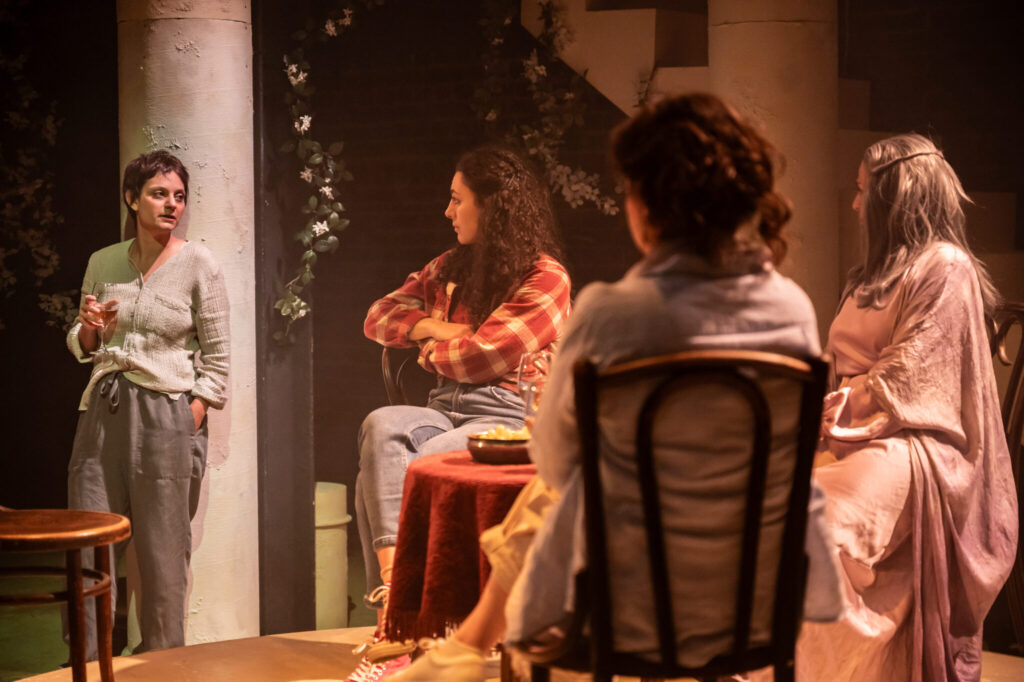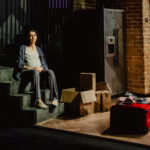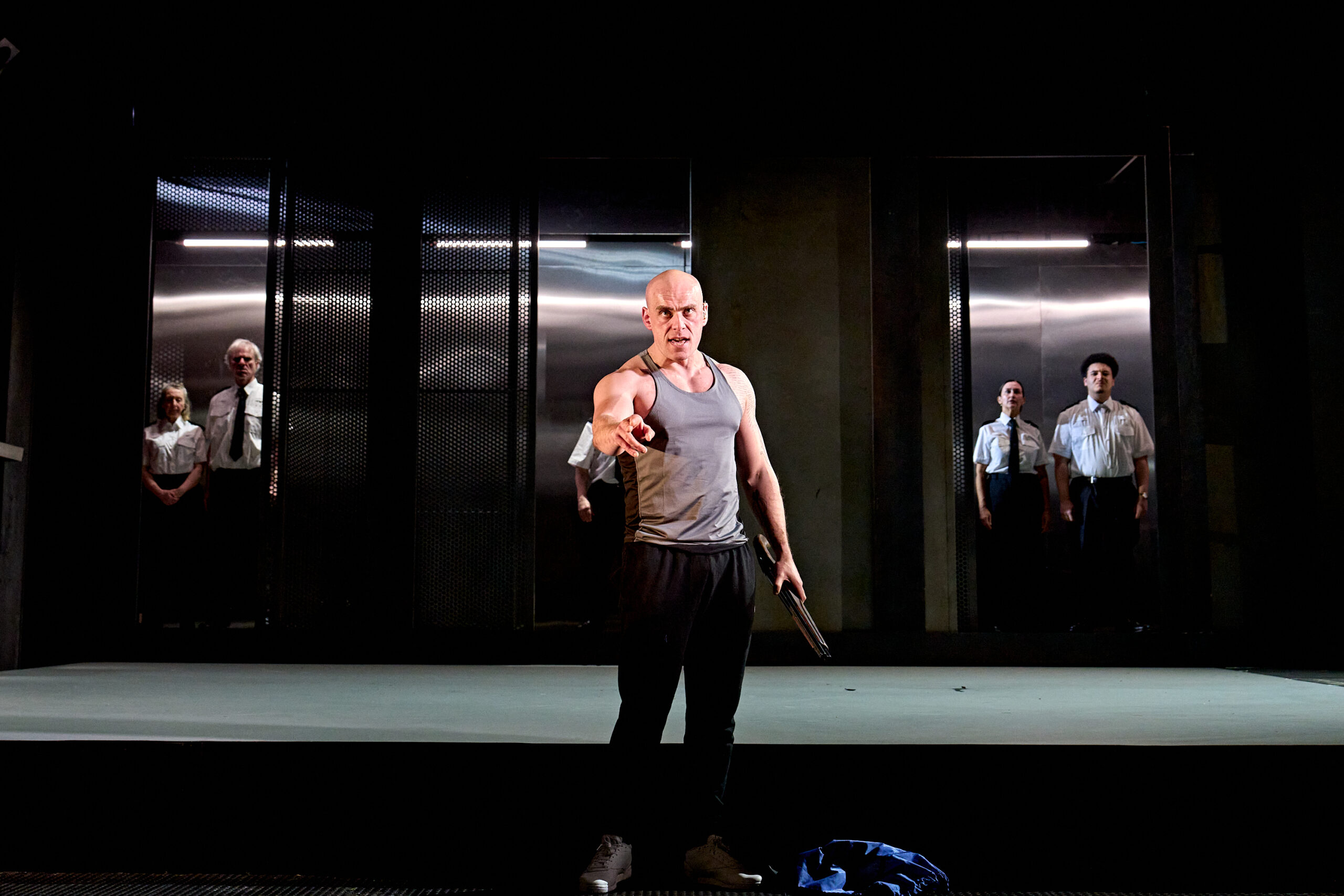
Arcola’s co-founder Leyla Nazli has adapted Ece Temelkuran’s celebrated novel Women Who Blow on Knots for the stage, presenting a powerful tale of freedom, resilience, and unbreakable female friendships in a production directed by Lerzan Pamir.
The play is set against the backdrop of the Arab Spring and follows the journey of four remarkable women on a road trip starting from Tunisia through Libya and Egypt to Lebanon.
We caught up with Nazli, Temelkuran and Pamir to find out more about the production which is currently running at Arcola.
Q&A with Ece Temelkuran, Leyla Nazli and Lerzan Pamir on Women Who Blow On Knots
How does it feel to be making your UK debut with Women Who Blow On Knots?
Lerzan: It has been a unique experience. Just like in the play, as women from different cultures and backgrounds, we were excited to come together and build bridges to tell this story. Staging a play about borders in another country and having the chance to do so at a place like Arcola Theatre, which I’ve followed for years, is very meaningful for me.
How does it feel to have your novel adapted for the stage?
Ece: A timely manifesto. Both personally and politically. I wrote this novel when I was fired from my job for political reasons, I was afraid of being imprisoned like many of my other journalist colleagues, a massive scale social media lynching was carried out to disrepute me and I was on my own in Tunis. That is why personally the adaptation for stage taught me that one must hold onto one’s determination to create beauty whatever the conditions may be, because at the end it is the beauty that stays, endures. The ugly and the evil are fragile and short-lived, although it seems the opposite.

How did you approach adapting Ece’s novel?
Leyla: When I began the adaptation process, I knew that the story’s journey was critical to maintain. The novel takes the characters on a physical road trip across borders, and emotionally through their personal transformations. While the novel is poetic and filmic, the challenge was capturing that movement and emotion on stage. It was important to me to preserve the emotional core of the story, keep the cultural and political significance intact, and ensure that the adaptation stayed faithful to Ece’s exploration of displacement and belonging.
What has it been like to take this story to the stage?
Lerzan: This is the story of four very brave women making a journey through the Arab Spring, towards themselves and towards each other. They are strong yet exhausted. They are women who haven’t surrendered to the fate of the geography they live in. Therefore, there are dozens of layers and hundreds of valuable details to process. While staging it, I wanted to preserve the spirit of this brave journey but also let the story take us along. It has been a journey both challenging and full of miracles, just like the story itself.

How much has your vision for the staging changed through the development period?
Lerzan: It’s a very big and challenging story to stage; traversing vast distances and landscapes. So, there were many things we reshaped together with the cast and creative team during rehearsals. Since it’s a story I love deeply, the hardest part was probably staying true to the story within the possibilities of staging.
Is there anything you hope audiences take away from the show?
Leyla: This play is not just about political upheaval, it’s about women’s ability to create and affect change when they recognise injustice. I want viewers to connect to these women’s journeys, whether it’s about finding a home, building a community, and surviving in a constantly changing world. The themes of displacement, belonging, and female solidarity remain as relevant today as ever, and I hope they resonate with everyone who sees the show.
Lerzan: I read this story for the first time 10 years ago, and the things that moved me then are very different from what affects me today. But one thing that hasn’t changed is that it still feels like a guidebook reminding me to believe in my inner strength whenever I feel hopeless. The women on stage are so brave and special – there’s a lot to be inspired by, and I think audiences, regardless of their background or gender, will feel empowered and renewed.
Ece: Especially for women audience, I wish them to remember the beauty, joy and power of women friendships. We will need it more than ever when the global war on women becomes more violent in coming years.
Women Who Blow on Knots is at Arcola from 25 October to 23 November














